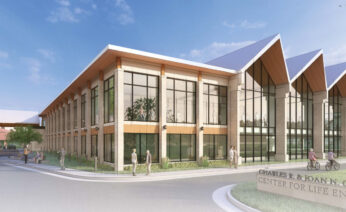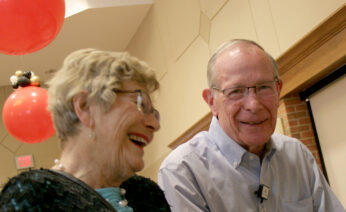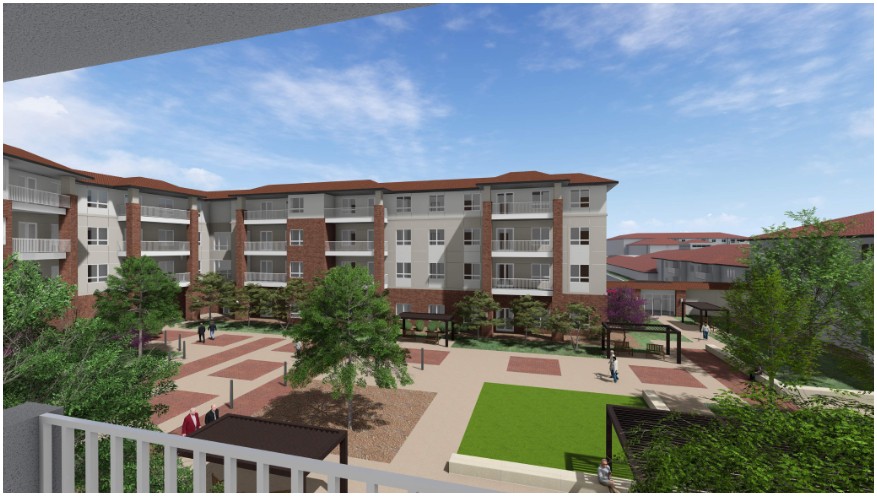
Learning The Types Of Dementia
Alzheimer’s and related dementia is a category of disease conditions where nerve cells in the brain either die or cease to function correctly. The result for an individual is a series of behavioral and memory changes that occur overtime and progressively. Ultimately, in Alzheimer’s disease and certain forms of dementia, the progression of memory impairment effects normal bodily functions such as walking, swallowing, and bowel and bladder control. The progression of memory and behavioral change is different in each person based on the type of dementia, the person’s underlying medical conditions/health status, and the use or access to care, support and other interventions.
Alzheimer’s and related dementia remains an irreversible disease process however much is known and more is being discovered, in terms of interventions and treatments that manage the disease progression and assist with maintaining functional capacity for a longer period. Through proper care, a proper environment and the
use of multiple therapeutic interventions, an individual afflicted with Alzheimer’s and/or related dementias can have quality of life, moderated behavioral changes and less
immediate and dramatic progression of behavior, memory and related physical functioning changes.
Memory Care & Assisted Living Options For Prevention
At Larksfield Place, we have decades of specialized experience and a team of trained specialists that work with individuals suffering from Alzheimer’s and related dementias. Our team approach integrates all disciplines in developing the proper therapeutic balance that is resident-specific and loved-one supportive. We know the progressive nature of Alzheimer’s and related dementias and as a result, care for the individual for us means to care for their loved ones as well via education, support, counseling, and presence.
This Fact Sheet is geared to providing simple, clear answers to the most common questions we encounter regarding Alzheimer’s and related dementias. At the end of this document is a list of resources that can also be helpful. Please feel free to call us at anytime with your questions or to inquire how Larksfield can help a person you know or care about that is suffering from Alzheimer’s disease or a related dementia.
Dementia Education Guide
Alzheimer’s Disease:
Most common type of dementia; accounts for an estimated 60 to 80 percent of cases.
Difficulty remembering names and recent events is often an early clinical symptom; apathy and depression are also often early symptoms. Later symptoms include impaired judgment, disorientation, confusion, behavior changes and difficulty speaking, swallowing and walking.
Vascular or Infarct Dementia:
Previously known as multi-infarct or post-stroke dementia, vascular dementia is less common as a sole cause of dementia than is Alzheimer’s disease. Impaired judgment or ability to make plans is more likely to be the initial symptom, as opposed to the memory loss often associated with the initial symptoms of Alzheimer’s. Occurs because of brain injuries such as microscopic bleeding and blood vessel blockage. The location of the brain injury determines how the individual’s thinking and physical functioning are affected.
Lewy Body Dementia (DLB):
People with DLB have some of the symptoms common in Alzheimer’s, but are more likely than people with Alzheimer’s to have initial or early symptoms such as sleep disturbances, well-formed visual hallucinations, and muscle rigidity or other parkinsonian movement features.
Lewy bodies are abnormal aggregations (or clumps) of the protein alpha-synuclein. When they develop in a part of the brain called the cortex, dementia can result. Alpha-synuclein also aggregates in the brains of people with Parkinson’s disease, but the aggregates may appear in a pattern that is different from DLB.
Mixed Dementia:
Characterized by the hallmark abnormalities of Alzheimer’s and another type of dementia — most commonly, vascular dementia, but also other types, such as dementia with Lewy bodies.
Recent studies suggest that mixed dementia is more common than previously thought.
Parkinson’s Disease:
As Parkinson’s disease progresses, it often results in a severe dementia similar to DLB or Alzheimer’s. Problems with movement are a common symptom early in the disease.
Frontotemporal Lobar Degeneration:
Includes dementias such as behavioral variant FTLD, primary progressive aphasia, Pick’s disease and progressive supranuclear palsy. Typical symptoms include changes in personality and behavior and difficulty with language.
The brain changes of behavioral variant FTLD may be present at the same time as the brain changes of Alzheimer’s, but people with behavioral variant FTLD generally develop symptoms at a younger age (at about age 60) and survive for fewer years than those with Alzheimer’s.
*Alzheimer’s Association/2012 Alzheimer’s Disease Facts and Figures
Diagnosing Types of Dementia
Symptoms must include decline in memory and in at least one of the following cognitive abilities:
- Ability to generate coherent speech or understand spoken or written language.
- Ability to recognize or identify objects, assuming intact sensory function.
- Ability to execute motor activities, assuming intact motor abilities and sensory function and comprehension of the required task.
- Ability to think abstractly, make sound judgments and plan and carry out complex tasks.
- The decline in cognitive abilities must be severe enough to interfere with daily life. To establish a diagnosis of dementia, a physician must determine the cause of the dementia-like symptoms. Some conditions have symptoms that mimic dementia but that, unlike dementia, can be reversed with treatment. These treatable conditions include depression, delirium, side effects from medications, thyroid problems, certain vitamin deficiencies and excessive use of alcohol. In contrast, dementia is caused by irreversible damage to brain cells.
Alzheimer’s Disease vs Dementia Symptoms
Alzheimer’s and Related Dementias affect each person differently and have different classifications. While they are similar, dementia is not labeled as a disease. Symptoms overlap and recognizing a change in behavior or ability is crucial initially in both cases. The most common initial clue is a decline in the ability of the individual to remember new information. The reason for this change is damage in brain cell functioning that interrupts the ability to integrate new information and thus, create new memories. As the damage progresses, new symptoms arise such as;
- Memory loss that disrupts daily life.
- Challenges in planning or solving problems.
- Difficulty completing familiar tasks at home, at work or at leisure.
- Confusion with time or place.
- Trouble understanding visual images and spatial relationships.
- New problems with words in speaking or writing.
- Misplacing things and losing the ability to retrace steps.
- Decreased or poor judgment.
- Withdrawal from work or social activities.
- Changes in mood and personality
Disease progression occurs at different paces for each person depending on general health status and the type of dementia. Progression includes and early, fairly functional stage, a moderate stage where some routine assistance with common daily activities is required and a late stage where total assistance with common activities such as eating, dressing, toileting and bathing are required. In the late stage, final progression includes inability to recognize people, becoming bed bound and lacking the capacity to eat or sometimes swallow. This very last stage is followed by death, typically caused by pneumonia or some other infection or final heart failure.
Causes of Alzheimer’s and Related Dementias
The number one cause or link for Alzheimer’s and Related Dementia is advanced age although, age in and of itself is not a reason for an individual to have Alzheimer’s or Related Dementia. For example, another underlying disease such as Parkinson’s can lead to dementia. Certain types of head injury or brain trauma also correlate with Dementia. Growing evidence suggest a direct link between cardiovascular disease and dementia. Other contributing factors can be alcohol abuse, drug abuse (prescription and illegal), smoking, poor diet, and familial history. In the case of Alzheimer’s disease, individuals with a direct family member (parent, sibling) with Alzheimer’s are more likely to develop the disease than individuals without direct family members afflicted by Alzheimer’s.
Memory Loss Treatment and Care
Today, no disease modifying treatments exist. This said, significant advances in the care of persons suffering from Alzheimer’s and Related Dementia have occurred and thus, progression can be managed and functionality retained for longer periods of time. Medications have show less promise but new drug therapies continue to come forward. The keys to effective care are;
- Appropriate use of available treatment options, primarily medications. Medications have side-effects and thus, improperly prescribed can cause a more rapid decline and/or, other medical conditions that reduce functionality.
- Effective medical and non-medical management of co-conditions or underlying health problems.
- Coordinated medical and non-medical care.
- Use of specialized places of care such as Adult Day Care facilities and residential or inpatient facilities. The key is to assure that the organizations
sponsoring such programs have trained staff and integrated disciplines to manage all facets of the individual’s medical and behavioral conditions. - Use of support groups and counseling, particularly for loved-ones.
Memory Loss Resources
Below and on the following pages is a list of available local resources that may provide varying elements of assistance to people suffering from Alzheimer’s and/or a Related Dementia. These programs may also offer support to the family and significant others of individuals affected with Alzheimer’s or Related Dementia.
For nearly twenty-five years, Larksfield Place has cared for individuals suffering from all types of Alzheimer’s and Related Dementia. If you have questions regarding the information presented here or need assistance, please feel free to contact us. Your inquiries and questions will be handled professionally and confidentially.
Anne Rothe, LMSW
Caregivers Group
Larksfield Place Assisted Living & Memory Support
316.858.3975
Dr. Stephen L. Benson, Psy. D., P.A.
Licensed Clinical Psychologist
316.689.3527
Alzheimer’s Association
1.800.272.3900
www.alz.org
Alzheimer’s Foundation of America
1.866.232.8484
www.alzfdn.org
Sedgwick County Department on Aging
316.660.5120
www.sedgwickcounty.org
Central Plains Area Agency on Aging
316.660.5120
www.cpaaa.org



